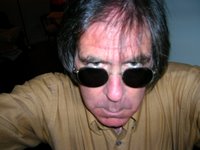
Is it one of the requirements of the American Immigration and Naturalization Service that in order to obtain an entry visa French acrobats have to be completely out of their minds? On August 7, 1974, Philippe Pettite repeatedly walked back and forth between New York’s World Trade Center towers on a tightrope that had been strung between the roofs of the two buildings. On the 30th in 1859, acrobat Jean François Gravelet-Blondin, known as The Great Blondin, crossed Niagara Falls numerous times on a tightrope. He did it blindfolded in a sack, pushing a wheelbarrow, on stilts, and carrying his manager, Harry Colcord, on his back. Doing all that he worked up quite an appetite so on one trip, he sat down midway to cook and eat an omelet.
When he was five years old Blondin was sent to the École de Gymnase to study acrobatics, and, after six months training as an acrobat, made his first public appearance as "The Little Wonder".
 Have you ever wished that you had a bit of warning about what was going to happen in your life so that you could prepare yourself? I know that I have. At times, a heads up would have come in quite handy. Joan of England, also known as Joan of the Tower because she was born in the Tower of London got a huge heads up when she was born on the 5th in 1321. Being born in the Tower of London doesn’t suck quite as much as you might assume. At least it doesn’t when you are also the youngest daughter of King Edward II and Queen Isabella of France. Pursuant to the Treaty of Northampton, upon her birth she became engaged to marry David II of Scotland, which she did on July 17, 1328. Joan was married when she was 7 years old. My guess is that her mommy and daddy waited that long to see if she was going to survive infancy.
Have you ever wished that you had a bit of warning about what was going to happen in your life so that you could prepare yourself? I know that I have. At times, a heads up would have come in quite handy. Joan of England, also known as Joan of the Tower because she was born in the Tower of London got a huge heads up when she was born on the 5th in 1321. Being born in the Tower of London doesn’t suck quite as much as you might assume. At least it doesn’t when you are also the youngest daughter of King Edward II and Queen Isabella of France. Pursuant to the Treaty of Northampton, upon her birth she became engaged to marry David II of Scotland, which she did on July 17, 1328. Joan was married when she was 7 years old. My guess is that her mommy and daddy waited that long to see if she was going to survive infancy.








